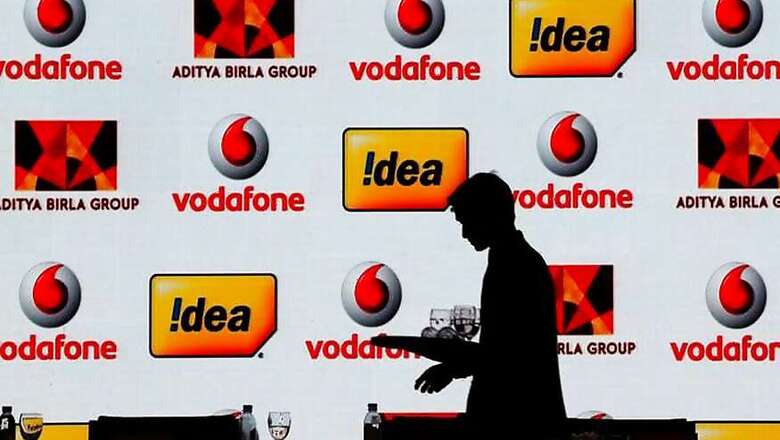
views
New Delhi: Troubled Vodafone Idea has written to the telecom department expressing its inability to pay full AGR dues unless the government takes urgent measures, including allowing staggered payment, reduction in levies and implementation of floor prices in the crisis-ridden sector. The letter to the communications ministry comes at a time when the company is confronted with AGR dues of over Rs 53,000 crore and has paid a mere 7 per cent of its liabilities so far.
Warning that it is "not in a sound financial state", Vodafone Idea said the company would be in a position to meet its liabilities only if the government initiates steps including allowing set offs for GST credit accumulated so far, and permitting staggered mechanism for payment of balance amount of interest, penalty, and interest on penalty. It said adjustment of GST credit due from the government could help in meeting its AGR payment.
Citing its losses over last few years, the company said the financial stress in the telecom sector is widely acknowledged. The company underlined its current subscriber base of 300 million, and employee base of 10,000 direct staffers while making a strong plea for "urgent support from government". Vodafone Idea Ltd (VIL) said it can settle the balance of its self-assessed principle if the Centre allows set-offs of Rs 8,000 crore worth of GST credit lying with the government. In fact, the amount when fully set off will even pay in part the self assessed interest, it said in the letter to the telecom department seen by PTI.
The company has sought a moratorium of three years on payment of interest and penalty, and subsequent payment timeline of 15 years at an interest of six per cent. The letter, similar to the one written by industry body COAI, has also batted for grant of loan, equal to AGR amount at six per cent interest rate "so that the AGR liability may be discharged immediately". When contacted, a VIL spokesperson refused to comment on the issue.
VIL, in its letter, further pitched for reduction in licence fee to three per cent from the current eight per cent, and also sought reduction in spectrum usage charges (SUC) to zero or a uniform rate of one per cent for all spectrum. Blaming the below-cost pricing of telecom services, compelled by competitive pressures as being the root cause of financial stress, the company sought immediate implementation of floor price in tariffs.
VIL said a floor price needs to be immediately made effective, say from April 1, 2020 to ensure that the sector is fully sustainable and in a position to pay deferred spectrum and AGR dues and still invest to create world-class network and services.
The company said the introduction of floor price will enable revenue of the telecom sector to nearly double from the current level of Rs 1.75 lakh crore. "Revenue of VIL is likely to touch the revenue levels which existed five years ago i.e 2015-16 and ensure that enough cash is generated to pay for deferred auction spectrum dues and deferred AGR payments of interest, penalty and interest on penalty," it said.
VIL Chairman Kumar Mangalam Birla has in the past made it clear that the company will fold if it is forced to make payment of over Rs 53,000 crore dues. Birla has held multiple rounds of discussions with the finance minister and the telecom minister over the last few days to explore options to keep the company afloat.
In all, as many as 15 entities owe the government Rs 1.47 lakh crore -- Rs 92,642 crore in unpaid licence fee and another Rs 55,054 crore in outstanding spectrum usage charges. These dues arose after Supreme Court, in October last year, upheld the government's position on including revenue from non-core businesses in calculating the annual Adjusted Gross Revenue (AGR) of telecom companies, a share of which is paid as licence and spectrum fee to the exchequer.
The Supreme Court earlier this month rejected a plea by mobile carriers such as Bharti Airtel and VIL for extension in the payment schedule and asked them to deposit an estimated Rs 1.47 lakh crore in past dues for spectrum and licences.




















Comments
0 comment